
Into the Creative Mind of Andy Warhol: His Art, Style, and Story
Share
“They always say time changes things, but you actually have to change them yourself”. – Andy Warhol
Andy Warhol, an icon of the 20th-century art scene, continues to captivate audiences with his bold and innovative approach to creativity.

From his iconic Campbell's Soup Cans to his enigmatic portraits of celebrities, Warhol's work transcends time, leaving an indelible mark on the world of art. Today, we explore Warhol's creative mind, uncovering the essence of his art, his distinctive style, and the compelling story behind the man who forever changed the landscape of contemporary art.
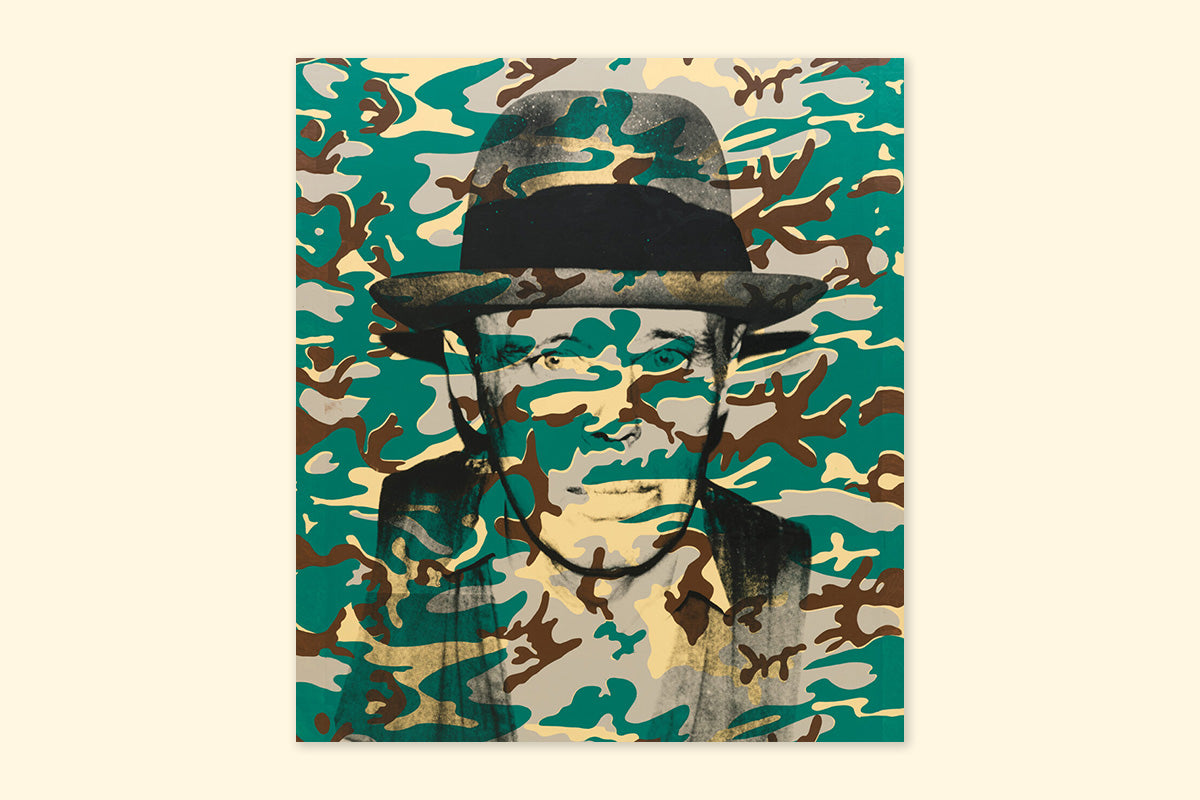
Joseph Beuys (Camouflage), 1986
The Early Years: A Journey to Stardom
Born Andrew Warhola on August 6, 1928, in Pittsburgh, Pennsylvania, Andy Warhol showed early signs of artistic talent. His upbringing in a working-class immigrant family instilled in him a strong work ethic and a keen eye for the world around him.
After studying commercial art at the Carnegie Institute of Technology, Warhol embarked on a successful career as a commercial illustrator in New York City, where he quickly gained recognition for his whimsical and innovative designs.
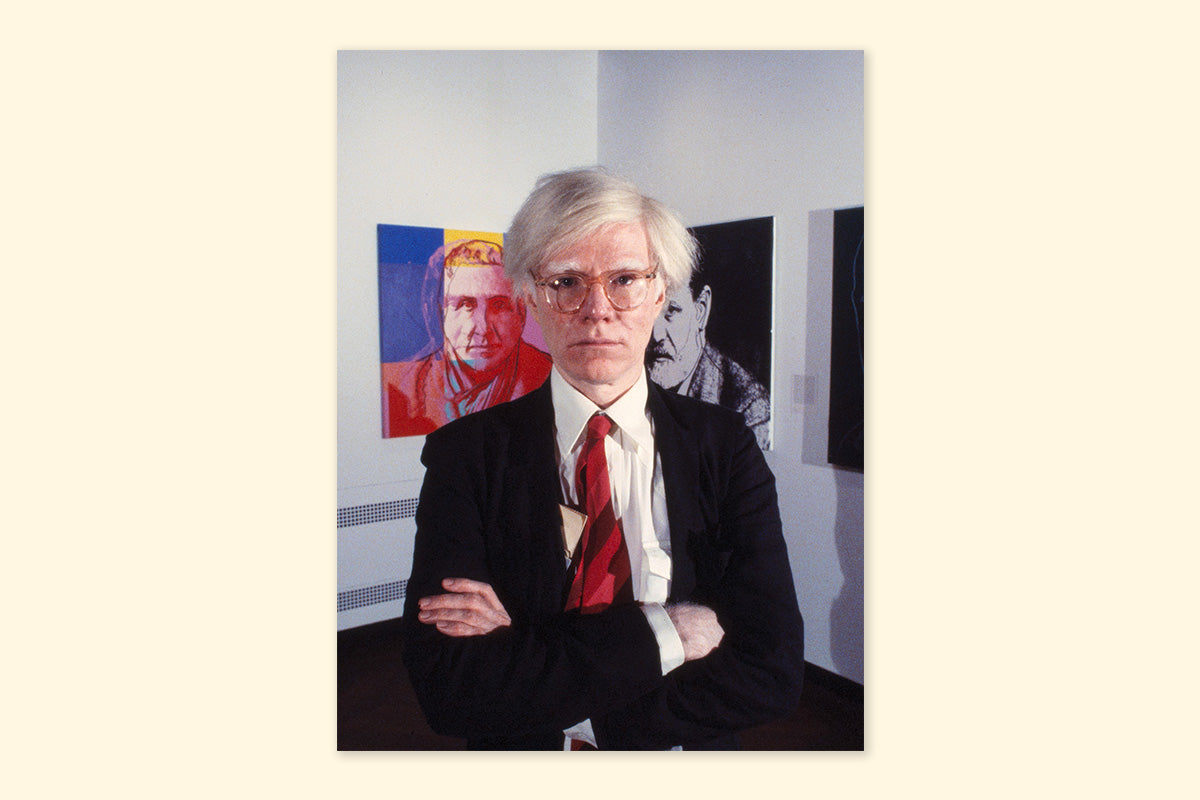
Andy Warhol at the Jewish Museum
The Birth of Pop Art: Warhol's Creative Revolution
It was in the 1960s that Warhol's artistic vision truly came to fruition with the emergence of Pop Art, a movement that celebrated the mundane and the mass-produced. Warhol embraced the everyday objects of consumer culture, elevating them to the realm of high art.
His iconic Campbell's Soup Cans series, created in 1962, remains a quintessential example of his groundbreaking approach, challenging conventional notions of what constituted art.

The Factory: A Hub of Creativity and Controversy
At the heart of Warhol's artistic enterprise was his famed studio, The Factory.
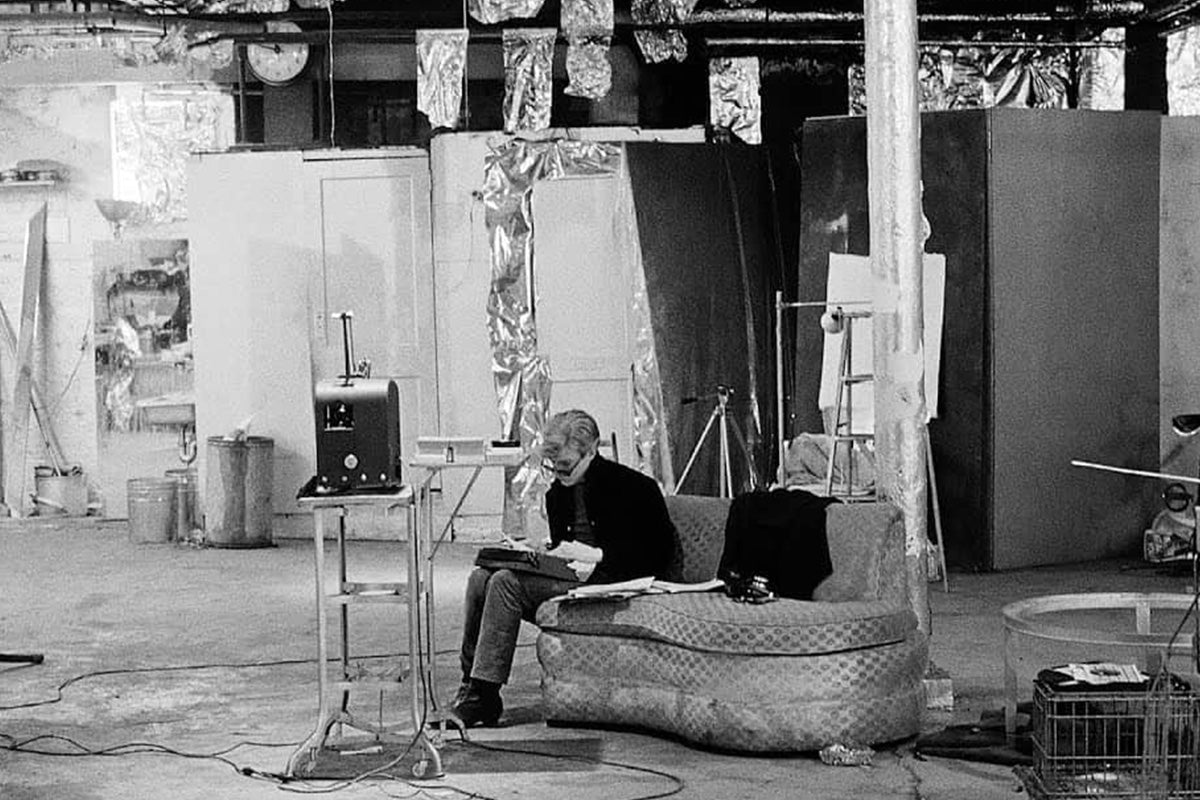
A bustling hub of creativity and controversy, The Factory became a haven for artists, musicians, actors, and intellectuals, all drawn to Warhol's magnetic presence and avant-garde sensibilities.
It was here that Warhol produced some of his most iconic works, including his series of silkscreen portraits of celebrities such as Marilyn Monroe, Elvis Presley, and Elizabeth Taylor.
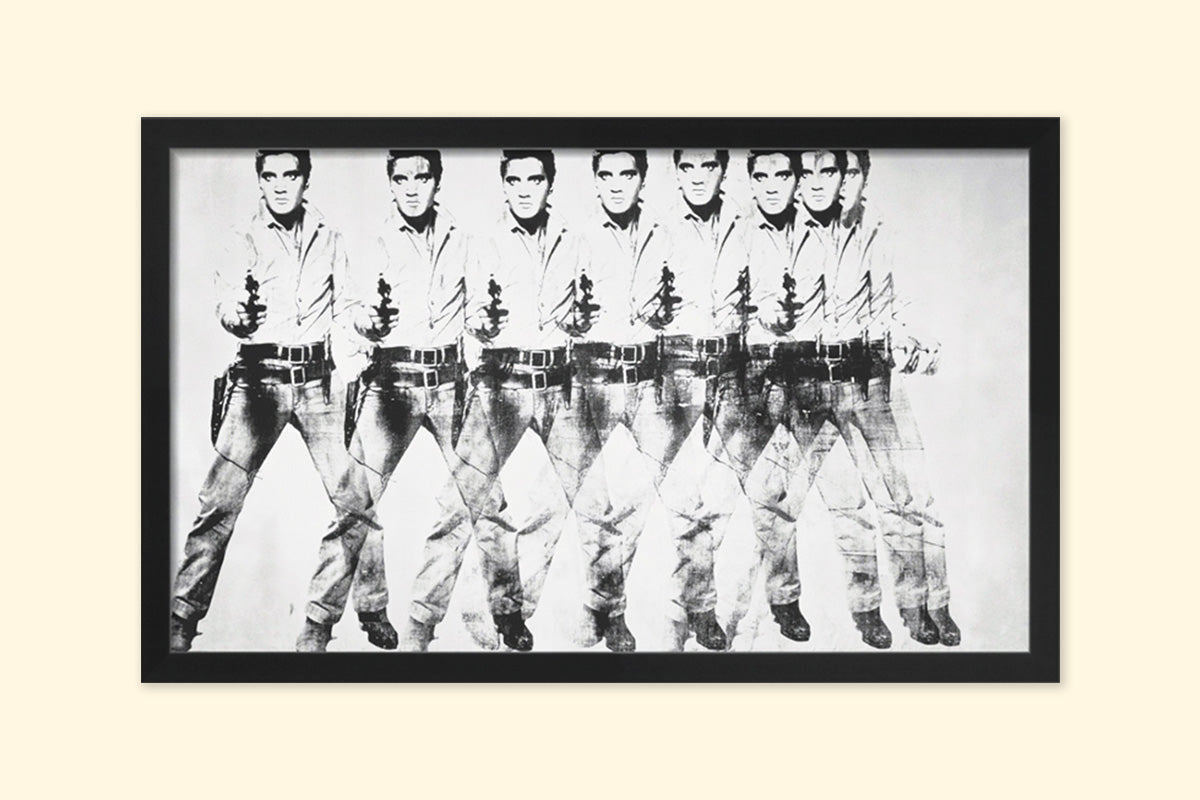
Warhol's Style: Bold, Vibrant, and Unapologetically Modern
Warhol's distinctive style is characterized by its bold use of color, graphic compositions, and repetition of imagery. His works often feature vibrant hues and striking contrasts, reflecting the visual language of advertising and mass media.
Through his innovative techniques, such as silk screening and photo manipulation, Warhol blurred the boundaries between high and low culture, challenging viewers to reconsider their preconceived notions of art and beauty.

The Myth of Warhol: Fame, Celebrity, and Identity
Throughout his career, Warhol grappled with the notion of fame, celebrity, and identity, themes that permeate much of his work. His fascination with the cult of celebrity led him to create portraits of iconic figures from the worlds of film, music, and politics, immortalizing them in his distinctive style.
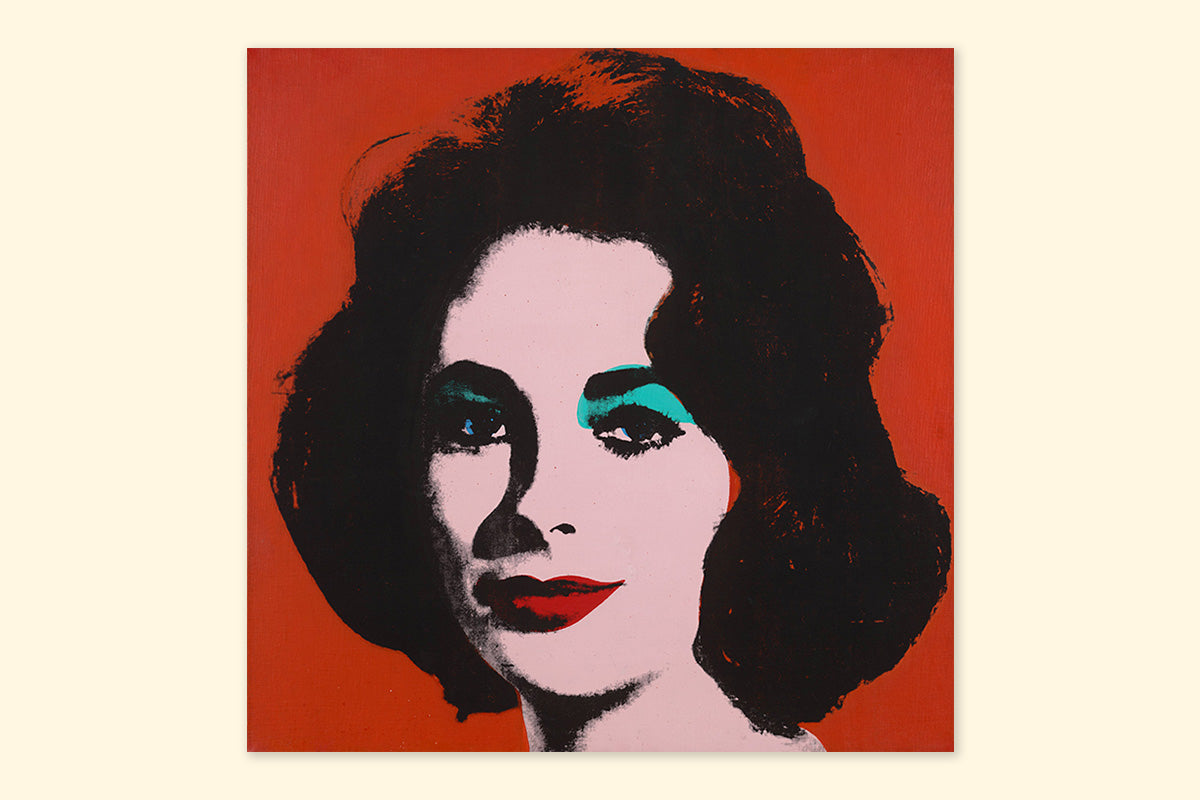
Liz #6 (Early Colored Liz), 1963
Yet, beneath the surface glamor, Warhol's work also explores the fragility of fame and the elusive nature of identity in an increasingly media-saturated society.
Legacy and Influence: Warhol's Enduring Impact
Andy Warhol's legacy extends far beyond the confines of the art world, influencing everything from fashion and music to advertising and popular culture.

His revolutionary approach to art continues to inspire artists of all disciplines, challenging them to push the boundaries of creativity and innovation. From the streets of New York City to galleries and museums around the world, Warhol's presence looms large, a testament to the enduring power of his artistic vision.

Andy Warhol’s Most Famous Masterpieces
Andy Warhol's prolific career produced a vast array of artworks, many of which have become iconic symbols of 20th-century art. Here are some of his most famous pieces:
1. Campbell's Soup Cans (1962)
Perhaps Warhol's most recognizable work, this series consists of 32 paintings, each depicting a different variety of Campbell's Soup. It challenged traditional notions of art by elevating a mundane, everyday object to the status of high art.
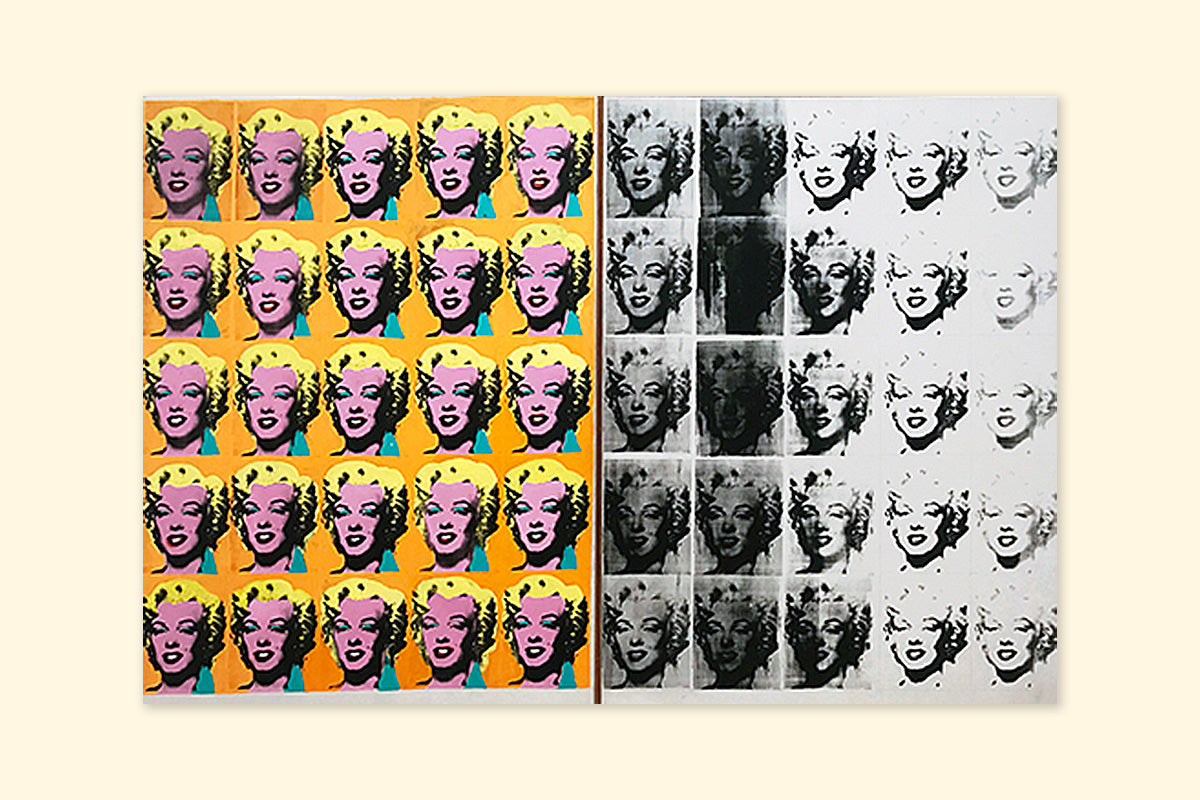
2. Marilyn Diptych (1962)
This iconic piece features repeated images of Marilyn Monroe, reflecting Warhol's fascination with celebrity culture and the power of mass media. The diptych format, with one half in color and the other in black and white, adds depth to the work's commentary on fame and mortality.
3. Eight Elvises (1963)
This painting, which features eight overlapping images of Elvis Presley, highlights Warhol's interest in repetition and mass production. It captures the essence of celebrity worship and the commodification of fame.
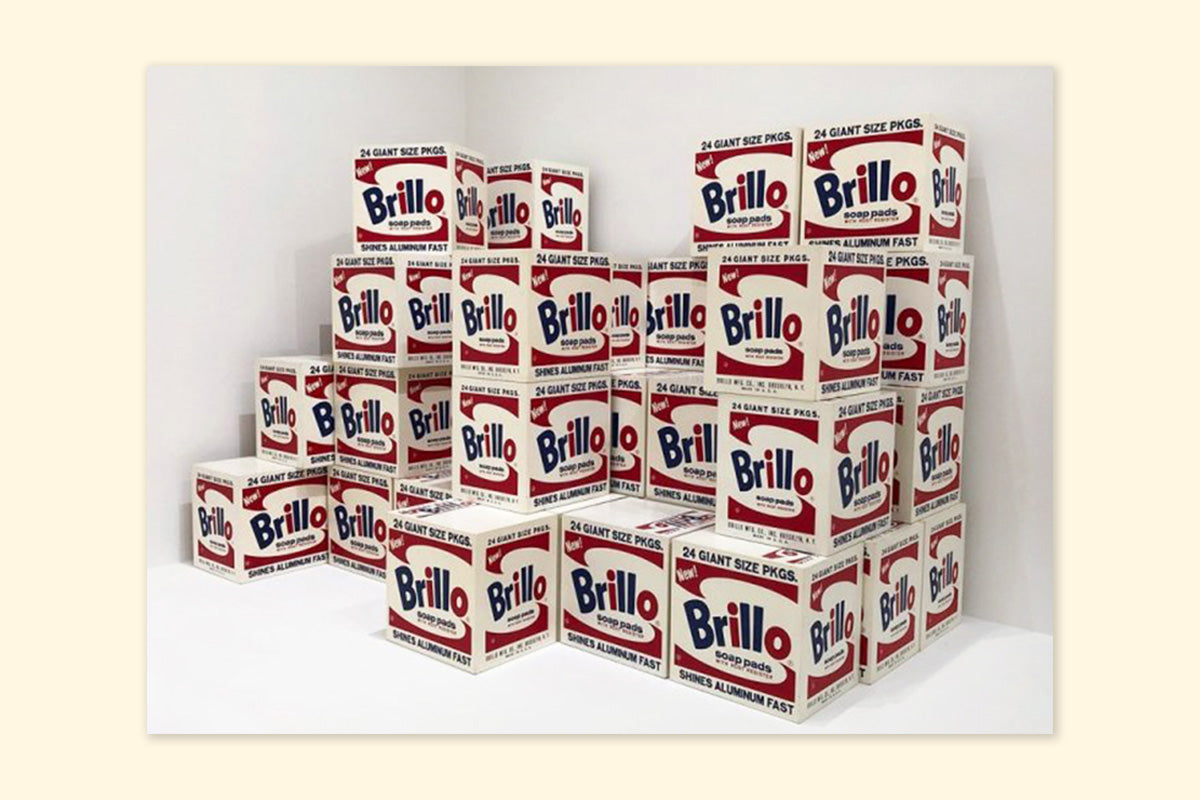
4. Brillo Boxes (1964)
In this series, Warhol replicated Brillo soap pad boxes using silk screen printing, blurring the line between art and commerce. The Brillo Boxes challenged viewers to reconsider the definition of art and the role of consumer products in contemporary culture.
5. Gold Marilyn Monroe (1962)
Another exploration of Marilyn Monroe's image, this painting depicts the actress in vibrant gold tones against a yellow background. It embodies Warhol's fascination with glamor and the allure of Hollywood stardom.

Green Coca-Cola Bottles (1962)
6. Green Coca-Cola Bottles (1962)
This series features multiple repetitions of Coca-Cola bottles, underscoring Warhol's fascination with consumer goods and the visual language of advertising. The vibrant colors and graphic compositions make a bold statement about the pervasiveness of consumer culture.
7. Liz (1963)
Warhol created several portraits of Elizabeth Taylor, but this particular piece, simply titled "Liz," is one of the most famous. It showcases Taylor's image in bold colors, reflecting both her celebrity status and Warhol's distinctive artistic style.

Little Electric Chair (1964-1965)
8. Little Electric Chair (1964-1965)
This series explores themes of death and mortality, featuring repeated images of an electric chair. Warhol's use of a disturbing subject matter challenges viewers to confront the darker aspects of contemporary society.
The Enduring Legacy of an Artistic Icon
Andy Warhol remains a towering figure in the annals of art history, his influence reverberating through the decades since his untimely death in 1987.
From his early days as a commercial illustrator to his emergence as the leading figure of the Pop Art movement, Warhol's journey is one of creativity, innovation, and unapologetic self-expression. Through his bold and iconic works, Warhol challenged the conventions of his time, forever changing the way we perceive and engage with art.
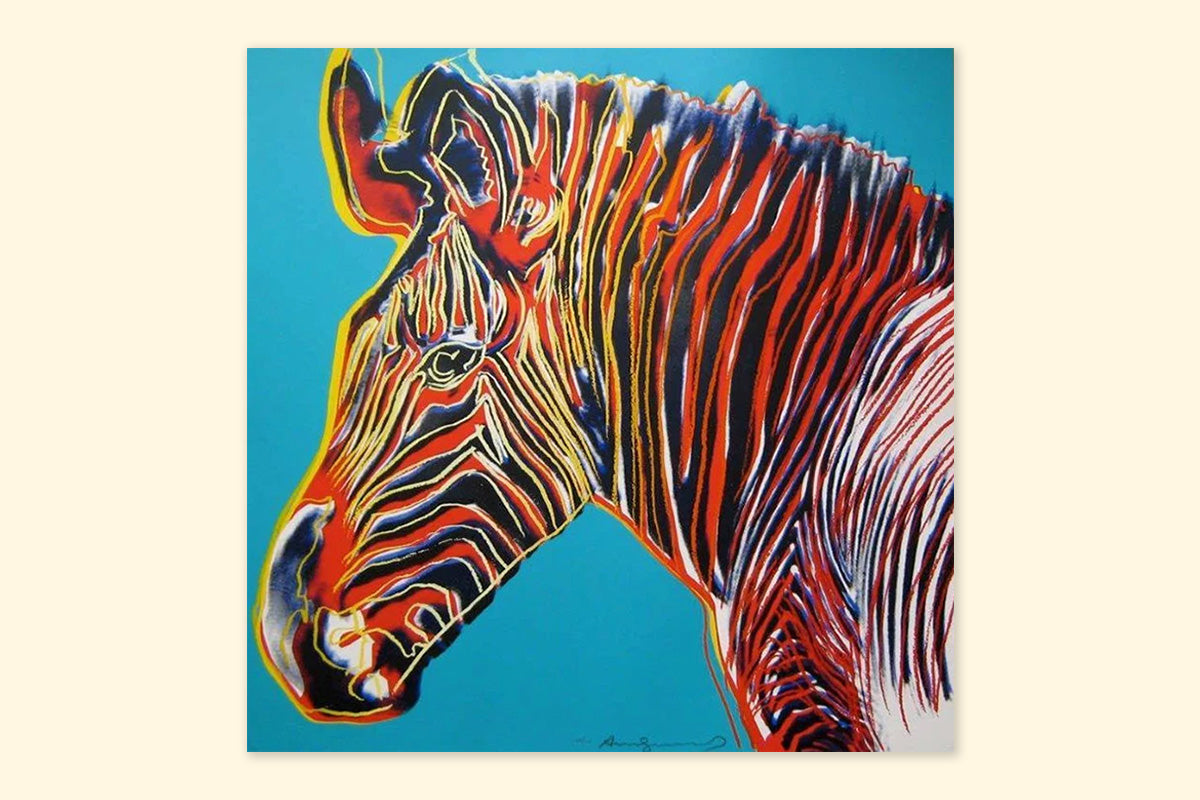
As we continue to explore the depths of his creative mind, we are reminded of the enduring power of art to provoke, inspire, and transcend the boundaries of culture and society. Andy Warhol may be gone, but his legacy lives on, a testament to the transformative power of creativity and the indomitable spirit of the artistic mind
If you’d like to know more about other artists like Andy Warhol, don’t hesitate to drop by The Creative Corner!